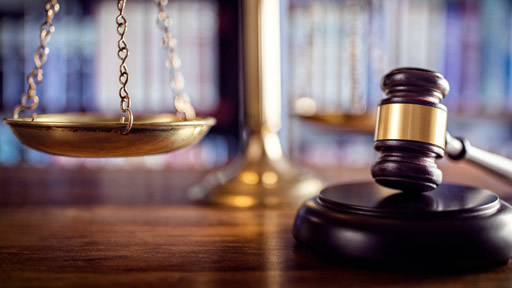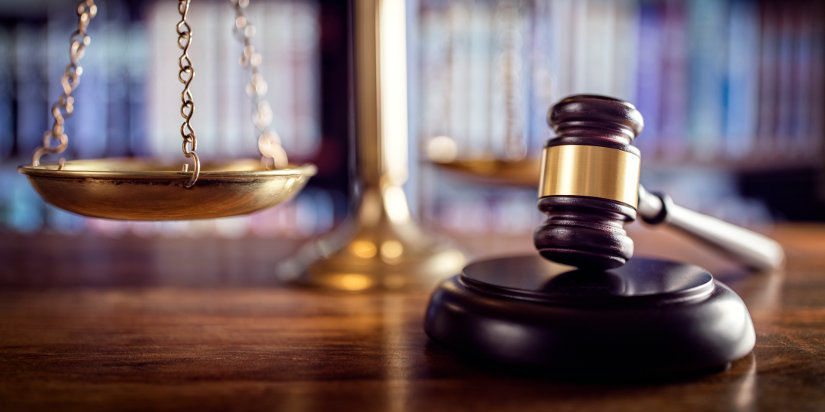INJUNCTIONS UNDER GHANAIAN LAW: APPLYING FOR INJUNCTIONS AGAINST GOVERNMENTAL BODIES AND THE EFFECTS
INTRODUCTION
An injunction is a court-ordered remedy whereby a party (the respondent) is required to do or refrain from doing a specified act. In Ghana’s civil justice system, injunctions serve as indispensable equitable tools used to (i) preserve the rights of litigants, (ii) maintain the status quo, or (iii) prevent irreparable harm pending a final determination of the substantive cause. They are frequently invoked in disputes over land, breach of contract, intellectual property, employment rights, and public interest litigation.
LEGAL AND JURISDICTIONAL BASIS
Statutory and Constitutional Basis
While there is no single statute in Ghana that exclusively confers jurisdiction to issue injunctions, the power flows from several sources:
- Article 11(1)(e) and Article 11(2) of the 1992 Constitution incorporate the “common law and the rules of equity” as part of the laws of Ghana.
- Courts Act, 1993 (Act 459) provides for the jurisdiction of superior courts.
- Most directly, Order 25 of the High Court (Civil Procedure) Rules, 2004 (C.I. 47) regulates interlocutory injunctions.
Rule 1 of Order 25, C.I. 47
Rule 1(1) states:
“The Court may grant an injunction by an interlocutory order in all cases in which it appears to the Court to be just or convenient to do so, and the order may be made either unconditionally or upon such terms and conditions as the Court considers just.”
Rule 1(2) provides that a party to a cause or matter may apply for the grant of an injunction before or after trial, whether or not a claim for the injunction was included in the writ, counter-claim or third-party notice.[1]
TYPES OF INJUNCTIONS
Ghanaian jurisprudence distinguishes three primary categories:
Interim or ad-interim injunctions: Interim or ad-interim injunctions constitute provisional injunctive relief granted ex parte, that is, upon the application of the applicant without prior notice to the respondent, and are invoked only in situations of demonstrated urgency or where the giving of notice would defeat the very object of the application.
Pursuant to Order 25 Rule 1(9) and (10) of the High Court (Civil Procedure) Rules, 2004 (C.I. 47), the court is empowered, upon being satisfied that the circumstances disclose a prima facie necessity for immediate intervention, to issue such an order to preserve the status quo or avert imminent irreparable harm pending the hearing of a motion on notice.
However, the Rule imposes a strict temporal limitation on the lifespan of such ex parte orders. Except where the court expressly extends its duration upon good cause shown, an interim injunction shall automatically lapse after ten (10) days from the date on which it is granted. This statutory limitation underscores the exceptional nature of ex parte injunctive relief and serves to balance the court’s duty to prevent injustice with the respondent’s constitutional right to be heard.
Accordingly, upon the grant of an interim or ad-interim injunction, the applicant is under a corresponding obligation to proceed expeditiously with the substantive motion on notice, failing which the court may discharge the interim order or make any further order it deems just.
The purpose of these provisions is to ensure that ex parte injunctions operate strictly as temporary stop-gap measures rather than as a mechanism for obtaining extended relief without affording the opposing party a fair hearing.
Interlocutory injunctions: An interlocutory injunction is a provisional order granted by the court on notice to the respondent, and is designed to operate pending the determination of the substantive action. Such relief is discretionary in nature, and its grant is guided by the twin objectives of preventing irreparable harm to the applicant and preserving the status quo between the parties until the court can determine the matter on its merits.
Under Order 25, Rule 1(1)– (8) of the High Court (Civil Procedure) Rules, 2004 (C.I. 47), the court is empowered to issue an interlocutory injunction where it is satisfied that:
- i There exists a prima facie case or serious question to be tried;
- ii The applicant would suffer irreparable harm if the injunction were refused; and
- iii The balance of convenience favors the applicant, that is, the inconvenience to the applicant from refusing the injunction outweighs the inconvenience to the respondent if it were granted.
Interlocutory injunctions remain in force until the final determination of the suit, or until such time as the court otherwise orders, including possible variation, extension, or discharge, depending on the evolving circumstances of the case. These orders are frequently invoked in matters involving property disputes, contractual obligations, or challenges to administrative actions where immediate compliance by the respondent could render the final judgment nugatory.
Final or perpetual injunctions: A final or perpetual injunction is a remedy granted by the court at the conclusion of the proceedings, typically forming part of the definitive judgment in the substantive action. Unlike interim or interlocutory relief, a final injunction operates permanently to either restrain a respondent from engaging in a specific act (prohibitory injunction) or to compel a respondent to perform a particular obligation (mandatory injunction).
The legal authority for final injunctive relief in Ghana is rooted in:
Order 25, Rule 3–6, High Court (Civil Procedure) Rules, 2004 (C.I. 47), which empowers the court to make an injunction either prohibitory or mandatory as it deems just;
The common law doctrines of equity, which have been incorporated into Ghanaian law under Article 11 of the 1992 Constitution, granting courts inherent equitable jurisdiction to prevent a party from acting unconscionably. Judicial precedents such as the Giella v. Cassman Brown [1973] EA 358 which emphasize that perpetual injunctions are only granted when damages would be an inadequate remedy, and the court is satisfied that it is just and equitable to grant such relief.
Perpetual injunctions bind the respondent indefinitely, and non-compliance constitutes contempt of court, enforceable by coercive remedies. The court may also attach conditions to such injunctions, such as requiring the respondent to undertake specific acts, pay damages for breach, or comply with other ancillary orders deemed necessary to give full effect to justice.
THE PROCESS OF APPLYING FOR AN INJUNCTION
Motion Paper and Affidavit
An application is made by motion (on notice) supported by an affidavit. The applicant must file:
- A motion paper setting out the relief sought;
- An affidavit verifying facts;
- A Statement of Case under Rule 1(3) of Order 25, containing full arguments and legal authorities relied on.
Service and Opposing Affidavit
The respondent may oppose by filing an affidavit in opposition and a Statement of Case per Rule 1(4).[2] In ex parte applications, the respondent may later apply to set the order aside. Rule 1(11) provides for revocation or variation of an order.[3]
Undertaking in Damages
Where an injunction is granted, the court may require the applicant to provide an undertaking in damages, i.e., to compensate the respondent if the injunction is subsequently found to have been unjustified. Ghanaian practice often requires this for interlocutory injunctions (although not always articulated in the rules).
Service Triggers Status Quo
Once the court is seized of jurisdiction and an injunction application or motion is filed and served, the respondent should not act so as to undermine or alter the subject-matter of the dispute or the status quo. Acts done in contravention of such a pending motion may amount to contempt of court.[4]
SUBSTANTIVE TESTS FOR GRANTING AN INJUNCTION
Although injunctions are discretionary, Ghanaian courts have developed a consistent tripartite test (or its variants) for interlocutory relief:
- Serious issue to be tried / prima facie case – the applicant must demonstrate that there is a legitimate claim or defense.
- Adequacy of damages / irreparable harm – it must appear that damages would not be a sufficient remedy, or that the applicant would suffer irreparable harm if the injunction is refused.[5]
- Balance of convenience (or balance of hardship) – the court must assess whether the inconvenience to the applicant if refused is greater than the prejudice to the respondent if granted.
INJUNCTIONS AGAINST GOVERNMENTAL BODIES UNDER GHANAIAN LAW
In Ghana, the grant of injunctive relief against governmental bodies ministries, departments, agencies, metropolitan/municipal/district assemblies, statutory bodies, commissions, or public officers acting in their official capacity is governed by a combination of equitable principles, constitutional guarantees, and procedural rules under the High Court (Civil Procedure) Rules, 2004 (CI 47).
Because such applications implicate public administration, state resources, and ongoing governmental functions, the courts apply the general rules on injunctions with heightened scrutiny, ensuring that private rights are protected without impermissibly obstructing governance, except where the Constitution or statute expressly requires it.
Principles Applicable When Seeking Injunctions Against Governmental Bodies
- The Applicant Must Establish a Prima Facie Legal or Equitable Right
As in all injunction applications, the party seeking relief must demonstrate a recognizable legal right, per the rule in Giella v. Cassman Brown [1973] EA 358, which Ghanaian courts routinely adopt.
However, when the respondent is the State or a public authority, the court scrutinizes whether the right asserted:
- is constitutionally protected (e.g., Article 18 property rights; Article 21 fundamental freedoms; Article 23 administrative justice);
- is statutorily grounded; or
- arises from a legitimate expectation under public law principles.
A bare claim without substantial legal grounding is insufficient to stall governmental action.
- The Conduct Complained of Must Appear Unlawful, Ultra Vires, or Procedurally Unfair
In public law injunctions, courts will not restrain the State merely because the applicant disagrees with a policy. There must be some showing of:
- Illegality: action taken without statutory authority.
- Ultra vires conduct: excess of statutory or constitutional powers.
- Procedural impropriety: violation of natural justice, failure to consult when statutorily required, breach of mandatory procedural steps.
- Irrationality/unreasonableness: per the Tameside and Wednesbury standards, applicable in Ghana through Article 23 of the 1992 Constitution.
If the applicant cannot show that the governmental action threatens a right through one of these grounds, the court is reluctant to intervene.
- Public Interest Consideration Is Paramount
This is the main distinguishing principle in actions against governmental bodies.
While private injunctions hinge on balance of convenience, injunctions against the State require the court to consider:
- the broader public interest;
- whether governmental functions will be significantly impeded;
- whether granting the injunction risks administrative paralysis, disruption of public services, or fiscal waste.
The courts therefore adopt a cautious, conservative approach, only issuing such injunctions where:
- the threatened harm to the applicant is substantial and irreparable, AND
- the public interest does not strongly favour continuation of the governmental action.
- The Need for Judicial Deference to Governmental Policy
Ghanaian courts emphasize that the judiciary does not substitute its judgment for that of the executive or administrative bodies, except where constitutionally authorized.
Therefore, courts avoid injunctions that would:
- suspend implementation of national programs,
- freeze statutory mandates, or
- halt policy that falls squarely within the executive’s administrative discretion.
This principle is rooted in separation of powers (Articles 58 and 125).
- Availability of Alternative Remedies
Courts consider whether an injunction is necessary when:
- certiorari,
- mandamus,
- judicial review declarations, or
- compensation (damages)
could sufficiently address the applicant’s grievance.
If alternative remedies exist and are adequate, an injunction especially one that halts governmental action will likely be refused.
- Requirement of Notice When Seeking Interlocutory Relief
Under Order 25 Rule 1(2) of CI 47, applications for interlocutory injunctions must be on notice, except in extreme urgency.
Where the respondent is a governmental body, courts typically enforce the notice requirement strictly, unless illegality is immediate and irreversible.
EFFECTS AND LIMITS OF INJUNCTIONS ON PUBLIC AUTHORITIES
Because the respondent is the State, the consequences and restrictions of injunctive relief take a special form.
- Injunctions Cannot Be Used to Paralyze Statutory Duties
Ghanaian courts will not grant injunctions that:
- restrain a public authority from performing a mandatory statutory duty;
- compel an authority to act contrary to statute;
- suspend functions essential to public governance.
This principle aligns with Articles 295(1) (definition of public officers) and the doctrine that equity follows the law.
Example: courts rarely restrain the Electoral Commission from performing constitutional functions unless there is clear, gross illegality.
- Injunctions Do Bind the State No Crown/State Immunity
Article 2(1) and 33(1) of the Constitution empower courts to issue orders, directions, and writs against government bodies for enforcement of rights.
Thus, the State has no immunity from injunctions in Ghana.
- Government Officials May Be Held in Contempt
If a public authority violates an injunction, responsible officials may be cited for civil contempt, which can lead to:
- fines,
- imprisonment, or
- personal liability for costs.
This ensures governmental compliance.
- Injunctions Can Suspend Administrative Decisions Pending Review
An interlocutory injunction can temporarily freeze:
- demolitions,
- permit revocations,
- contract terminations,
- enforcement of administrative sanctions,
- compulsory acquisitions (depending on the circumstances).
However, this is only allowed where the court is satisfied that:
- the administrative decision is unlawful,
- the applicant’s rights would suffer irreparable harm, and
- the injunction would not significantly disrupt governance.
- Injunctions Cannot Be Used to Create Rights That Do Not Exist
Courts refuse injunctions that ask:
- the court to order government to enter into contracts,
- the court to force appointment or promotion,
- the court to restrain statutory investigations,
- the court to interfere in matters requiring executive/administrative discretion.
Equity does not manufacture rights.
- Injunctions Cannot Override Constitutional Functions
Where the Constitution explicitly grants power to a body (e.g., EC, CHRAJ, Auditor-General), courts are hesitant to issue injunctions that would effectively amend the Constitution by judicial order.
In such cases, only patent illegality or breach of natural justice justifies relief.
EFFECTS OF INJUNCTIONS ON GOVERNMENT OPERATIONS
When granted, injunctions may:
- Temporarily halt governmental action (e.g., stopping a demolition, suspension of a new policy rollout).
- Freeze the status quo pending judicial determination
- Compel public authorities to act lawfully E.g., requiring compliance with tender procedures, environmental rules, or due process.
- Protect constitutional rights
Especially rights to property, fair hearing, and natural justice.
Conclusion
In Ghanaian jurisprudence, injunctions are far more than procedural tools; they are potent equitable remedies situated at the intersection of constitutional supremacy, administrative accountability, and judicial discretion. Rooted in Order 25 of C.I. 47 and guided by common-law principles such as the Giella test, the modern Ghanaian approach to injunctive relief particularly against governmental bodies emphasizes both the protection of rights and the preservation of orderly governance. The courts consistently require applicants to demonstrate a credible legal or constitutional interest, a risk of irreparable harm, and a balance of convenience that favors restraint. Yet, when the respondent is the State or a public authority, these traditional requirements are supplemented by heightened scrutiny, considerations of public interest, and respect for the constitutional mandates of administrative and executive institutions.
The case law shows that while Ghanaian courts remain vigilant guardians against illegality, arbitrariness, and ultra vires conduct, they are equally cautious not to paralyze governmental functions or intrude upon policy-making domains reserved for the executive. In this sense, injunctions are neither automatic nor mechanical; they are discretionary instruments carefully calibrated to the unique circumstances of each dispute. For practitioners and litigants, the remedy must therefore be approached as a context-sensitive, rights-protective, but governance-aware intervention one that embodies the delicate balance between individual justice and the effective functioning of the State.
[1] It will be fair to put UG residence re-allocation on hold – High Court (AdomOnline, 17 April 2023) https://www.adomonline.com/it-will-be-fair-to-put-ug-residence-re-allocation-on-hold-high-court/
[2] It will be fair to put UG residence re-allocation on hold – High Court (AdomOnline, 17 April 2023) https://www.adomonline.com/it-will-be-fair-to-put-ug-residence-re-allocation-on-hold-high-court/
[3] https://bigsamconnect.com/wp-content/uploads/2024/02/RAK-Civil-Procedure.pdf?
[4] Kekeli Dzeketey, ‘Injunctions and the Balance of Fairness’ (Nartey Law Firm, 15 November 2023) https://narteylaw.com/2023/11/15/injunctions-and-the-balance-of-fairness/
[5] Kekeli Dzeketey, ‘Injunctions and the Balance of Fairness’ (Nartey Law Firm, 15 November 2023) https://narteylaw.com/2023/11/15/injunctions-and-the-balance-of-fairness/
BY; PRISCILLA MBAMA YAKUBU
Disclaimer: This publication is for information purposes only and is not intended to constitute legal advice. If you require information on any matter discussed in this article, kindly reach out to the firm directly.
Nartey Law Firm is a leading corporate and commercial law firm in Ghana providing legal services to individuals, domestic and international businesses. Ensuring the success of our clients’ objectives is at the core of what we do. Comprised of a dedicated team of lawyers with extensive experience in corporate, commercial and international law and litigation, we pride ourselves with the diligent execution of all client matters, whilst guaranteeing an uncompromising standard with respect to excellence in service delivery. Some of our focus areas are Real Estate, Trade and Commerce, Banking and Finance, Regulatory Advisory, Capital Markets and Mergers and Acquisitions.
CONTACT:
NARTEY LAW FIRM
TEL: +233 (0)553508582










